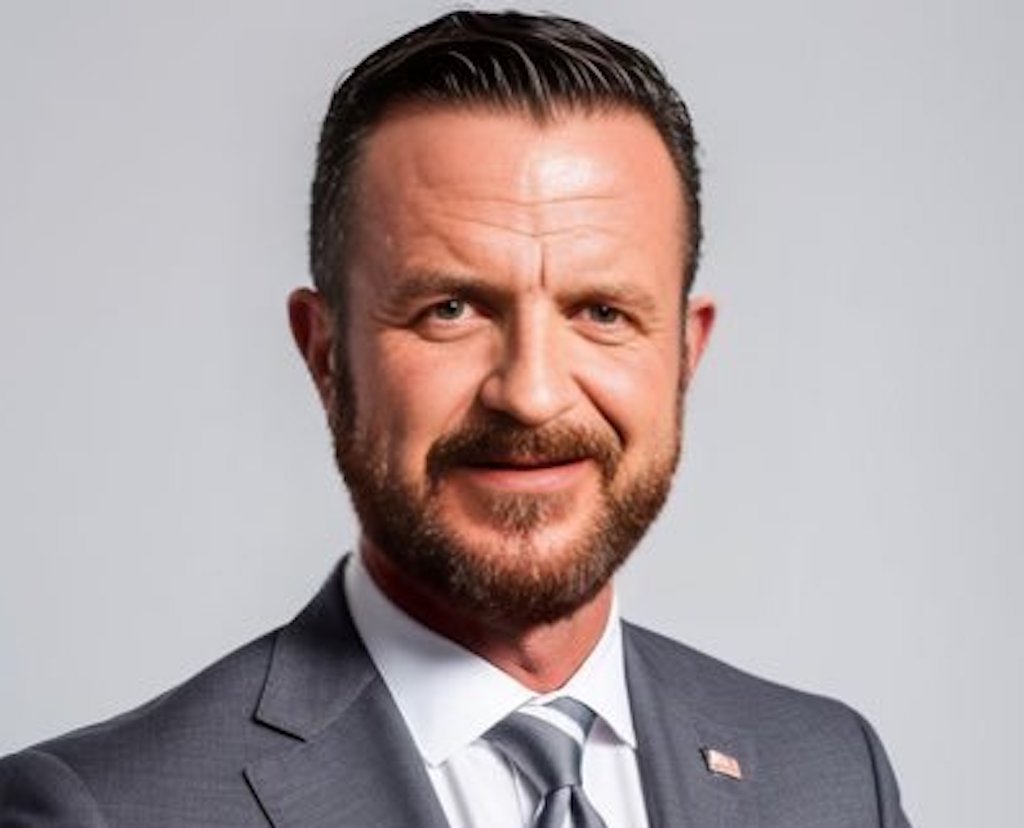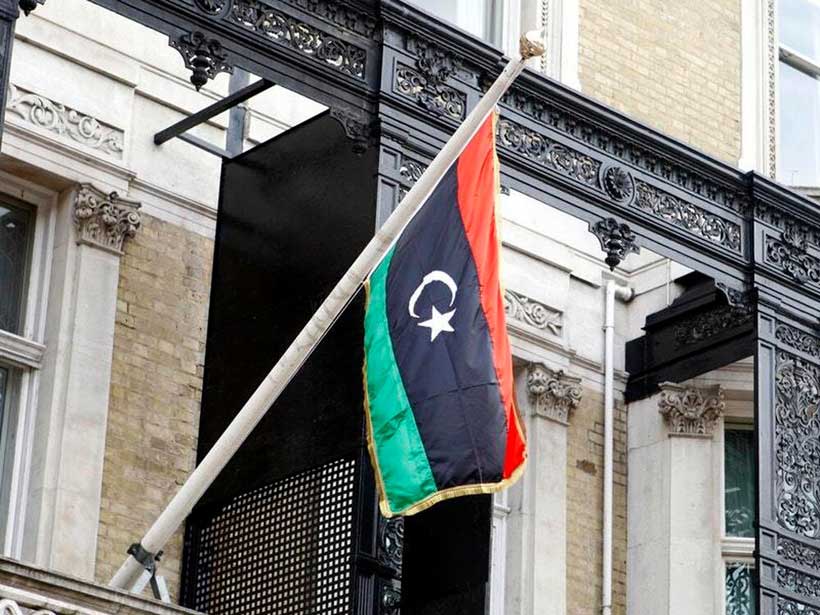Dan Jones: Libya is confronting intelligence wars shaped by hidden agendas

Libya is a battleground, just not in the way most people think. The country is a chessboard for intelligence services, each vying for influence, information, and strategic advantage. The war here isn’t just about who controls the oil fields or the capital, it’s about who controls the narrative and therefore the alliances. After 25 years in the industry, nearly a decade of this time in Libya, I’ve seen firsthand how intelligence failures, shifting alliances, and hidden agendas have shaped the country’s trajectory. Many believe they understand Libya, but the intelligence world sees a version of this country that rarely makes the news.
The Strategic Significance of Libya
Libya is no sideshow. It sits at the nexus of Europe, the Middle East, and sub-Saharan Africa. Its vast energy reserves, its position as a gateway to Europe, and its role as a buffer between the Mediterranean and the Sahel with porous southern borders make it an irresistible magnet for every major power.
Western intelligence agencies remain focused on counterterrorism, energy security, and migration flows. Russia uses Libya as a strategic foothold for operations in Africa through its intelligence services and proxy forces, while Turkey and Qatar continue to exert influence in Tripoli, though Ankara has recently begun engaging with the East as well. Egypt and the UAE, backers of Field Marshal Haftar’s Libyan National Army (LNA), view Libya as a critical component of their broader regional strategy.

Turkey, once firmly aligned with the Tripoli-based government, is now striking deals with eastern factions too—extending its influence across both sides of the divide in a pragmatic bid to secure long-term interests. But beneath these headlines lies a quieter, more calculated war; one fought not with tanks and drones, but with agents, informants, surveillance, and proxy narratives.
Take Libya’s ceasefires. On paper, they look like steps toward peace. In practice, they’re usually just tactical pauses, timed to reposition, recruit, and recalibrate. They are the direct product of intelligence manoeuvring: back-channel talks, misdirection, influence campaigns. Behind every declaration of peace, there’s usually a quiet deal being struck in the quiet corners of the conflict. Each truce carries with it the fingerprints of a dozen different services playing a long game most Libyans never see.
The Players and Their Playbooks
Every intelligence service in Libya has its own playbook. What’s remarkable is how openly these players operate, often embedded within embassies, NGOs, corporate advisory boards, and even media outlets. Some pretend to support democratic reform, others fight extremism, but most are playing for something else entirely: leverage.
Western intelligence agencies (US, UK, France and Italy): Focused on counterterrorism, energy security, and migration control, often relying on proxy forces and intelligence-sharing agreements. Relationships shift as often as the actors do, with short-term interests too often overriding long-term strategy.
Russia (GRU, Wagner now Africa Corps) operations): Expanding influence, securing military and economic footholds, and projecting power into the Mediterranean and the Sahel. Africa Corps isn’t just a paramilitary force; it’s an extension of Russian intelligence operations, disguised as boots on the ground.
Turkey and Qatar: Propping up Tripoli-based factions, embedding intelligence officers within ministries and security agencies, and using economic partnerships and in Turkeys case, drone diplomacy, to secure influence.
Egypt and UAE: Backing Haftar as a bulwark against Islamism and regional rivals, while inserting their own security advisors deep into Libya’s eastern political apparatus. Their strategies divert on Sudan however with Egypt supporting the Sudanese Armed Forces and the LNA and UAE, the Rapid Support Forces.
Local actors: Tribal networks, militias, and local business elites are often underestimated, but should never be taken as just pawns in this game. They’re power brokers who manipulate external intelligence players, sell access, and regularly double deal.
Private intelligence firms: Filling the gaps left by overstretched state agencies. These firms provide threat assessments, vetting services, HUMINT collection, and “grey” capabilities, often acting as unofficial liaisons between governments and local actors. Some acting ethically. Others definitely not.
Missteps, Miscalculations, and Mayhem
During the battle for Benghazi (2014–2017), multiple foreign agencies were operating in the city, some propping up Haftar, others tracking jihadists, and a few simply watching the chaos unfold. One French team supporting Haftar was exposed when their helicopter was downed in 2016. The loss of three DGSE agents forced France to admit they were boots-on-ground.
A few years earlier, a UK special forces team parachuted into Libya to make contact with rebels, only to be captured by the very people they were trying to help. They were released, red-faced and humbled, but the damage to local trust lingered. Intelligence is a game of precision, but Libya has a way of turning neat plans into diplomatic farce.
Libya is littered with the remains of flawed intelligence assumptions. In 2011, NATO’s intervention succeeded militarily, but the intelligence assessments of what would come next were laughably optimistic. The vacuum left behind wasn’t filled with democracy, but with militias, warlords, and extremists. Western services, bluntly put, were caught unprepared.
“Libya’s intelligence war isn’t just a subplot to the wider conflict—it is the conflict, in many ways. Intelligence isn’t just being used to observe events; it’s being used to create them. And in doing so, it has blurred the line between peacebuilding and puppeteering.”
Fast forward to 2019: Haftar’s march on Tripoli was expected by some to be swift and decisive. It wasn’t. Turkish intervention turned the tide, deploying drones that decimated Haftar’s armoured convoys. The “sure thing” unravelled, and backers like the UAE and Egypt had to scramble for alternatives.
Even Russia learned the hard way. Wagner’s deployment was meant to deliver quick gains, but it became a resource sink. After Turkish-backed forces pushed them back, Wagner fortified central Libya and dug in. Their presence gave Russia leverage, sure; but also headaches.
Turkey’s MİT also has had its own trouble. Building a coalition of western Libyan militias was one thing, controlling them was quite another. The post-war infighting among these groups turned Tripoli into a mess of turf wars. That’s the irony of backing multiple factions: sometimes they fight each other, not your enemies.
Tripoli remains the biggest minefield. Multiple foreign actors have backed rival factions within the capital; often at the same time. The result is a capital city so riddled with intelligence agencies that no one really knows who controls what. Misinformation is king. And the truth is rarely clear.
The Information Industry: Private Intelligence and Corporate Influence
There’s another layer to Libya’s intelligence war, one rarely discussed publicly. It’s the role of private intelligence actors. In the absence of clear government policy or the limits of formal diplomatic engagement, private firms have filled the vacuum. They advise oil companies, secure diplomatic outposts, track militia allegiances, and sometimes, quietly broker deals. Some of these firms are staffed by former state intelligence officers. Others operate in murkier waters, offering capabilities governments can’t, or won’t deploy officially. They’re also cheaper, more agile, and when needed; deniable.
This isn’t always a bad thing. Private intelligence can offer clarity, insight, and ground-truth reporting that state services lack. But it also blurs the line between intelligence and influence-peddling. In a fractured state like Libya, this can make or break entire regions.
A Game with Regional Ripples
Libya’s intelligence war spills across borders. In 2021, Chadian rebels trained in southern Libya crossed the border and killed President Idriss Déby on the battlefield. Sudanese militias have fought as guns-for-hire in Libya’s wars, then returned home with cash, weapons, and dangerous experience. Libya’s ungoverned south is a haven for smuggling, training, and transit, and its destabilisation echoes across the Sahel.
Militant groups, human traffickers, and arms dealers treat Libya’s borders like suggestions. Fighters can vanish into Niger or Chad and pop up again weeks later with a new sponsor and new cause. It’s a regional feedback loop of chaos, enabled by the absence of meaningful intelligence coordination.
Libya has also been a testing ground for modern hybrid warfare: drones, disinformation, cyber ops, and HUMINT from contractors. The tactics refined here have been exported to conflicts from Nagorno-Karabakh to Mali.
What Next?
The intelligence war in Libya isn’t ending – it’s evolving. There are hints of maturity in some areas. Intelligence-sharing on counterterrorism, oil infrastructure, and migration has improved. Even rivals like Turkey and Egypt have quietly swapped notes on threats they both want neutralized. The U.S. has re-engaged through intelligence diplomacy; CIA Director William Burns made a rare visit to both Tripoli and Haftar in early 2023, signalling a potential shift in strategy.
But don’t mistake that for détente. The pieces are still on the board. The rivalries are still alive. And every time elections are proposed or power shifts, foreign services re-enter the game, backing their preferred horses and hedging their bets.
If you’re doing business, diplomacy, or security work in Libya, you’re already part of this intelligence war. You may not be a player, but you’re definitely a piece on the board.
READ: UNSC resolutions in Libya will prove an interference
Final Thoughts
Libya’s intelligence war isn’t just a subplot to the wider conflict—it is the conflict, in many ways. Intelligence isn’t just being used to observe events; it’s being used to create them. And in doing so, it has blurred the line between peacebuilding and puppeteering.
For those of us who’ve worked in this space, it’s a sobering reminder of just how much influence is wielded behind the scenes, and how quickly it can unravel. If there’s a lesson here, it’s that Libya isn’t just a failed state, it’s an active theatre. And the curtain has definitely not come down yet.
The views expressed in this article belong to the author and do not necessarily reflect the editorial policy of Maghrebi.org. Dan Jones is an intelligence specialist with over 25 years of experience, including the last 10 operating in Libya. He is the co-founder of Raedan Group, a UK-based private intelligence firm helping clients stay three steps ahead in some of the world’s high risk environments.
If you wish to pitch an opinion piece please send your article to alisa.butterwick@maghrebi.org.
Want to chase the pulse of North Africa?
Subscribe to receive our FREE weekly PDF magazine













